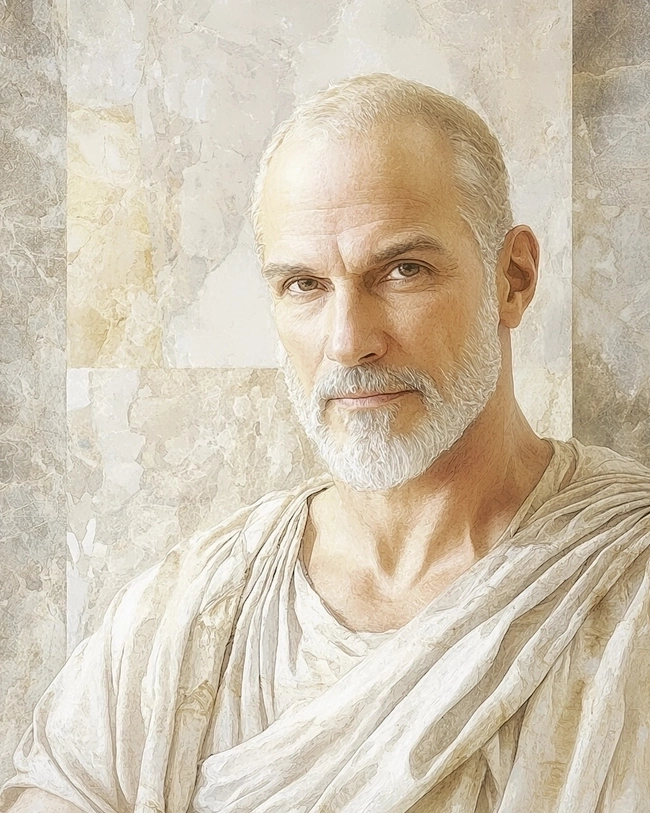Medius: The Soul and Its Eight Parts 🔥
Medius (fl. c. 250 AD) was a Stoic philosopher who engaged deeply with Stoic soul theory. In a notable debate with Longinus, he defended the Stoic idea that the soul consists of eight parts and is governed by the fiery Pneuma.
Historical Context and Influence
Medius lived during a time when Stoicism was in intellectual competition with emerging Neoplatonism. His debate with Longinus illustrates how Stoics resisted the Platonic notion of an immaterial and immortal soul. Instead, Medius argued that the soul was physical, structured, and governed by the pervasive force of Pneuma. More on the history of Stoicism
Why Is Medius Still Relevant Today?
The discussion on the nature of the soul is timeless. While modern neuroscience explores the physicality of the mind, Medius defended the idea of a structured, material soul centuries ago. His arguments provide insight into how the Stoics understood the relationship between the mind and the body. More on modern Stoicism
The Eight Parts of the Soul
Medius defended the Stoic theory that the soul consists of eight parts:
- Hegemonikon: The “ruling faculty” in the heart, seat of reason.
- Vision: The power of sight, controlled by Pneuma in the eyes.
- Hearing: The ability to perceive sound, regulated by Pneuma.
- Speech: The capacity for language, directly linked to the Hegemonikon.
- Touch: Sensory perception distributed throughout the body.
- Taste: The recognition of flavors, centered in the tongue.
- Smell: The perception of scents, connected to the nose.
- Reproductive faculty: The life force enabling procreation, governed by Pneuma.
Legacy
- Medius defended the Stoic materialist theory of the soul against Platonic influences.
- His debate with Longinus highlights the philosophical struggles of his time.
- He preserved a crucial aspect of Stoic thought that has regained significance in modern discussions on mind-body relations.
Virtues Embodied
- Wisdom: His detailed arguments on the soul reflect deep philosophical insight.
- Courage: He challenged the dominant Platonic view of his time.
- Justice: He defended the Stoic understanding of natural law and order.
- Temperance: He remained committed to rational analysis rather than metaphysical speculation.
Quotes from Medius
“The soul is not a divine mystery but a structure of nature.”
“What governs us is not a metaphysical idea but a fiery principle within.”
“To understand the soul, one must understand the body.”
More Stoic wisdom: Stoic Quotes
Please Note
Stoic exercises and practices are meant to inspire, not instruct. For personal guidance, please consult an expert. Stoic Practices: Disclaimer


